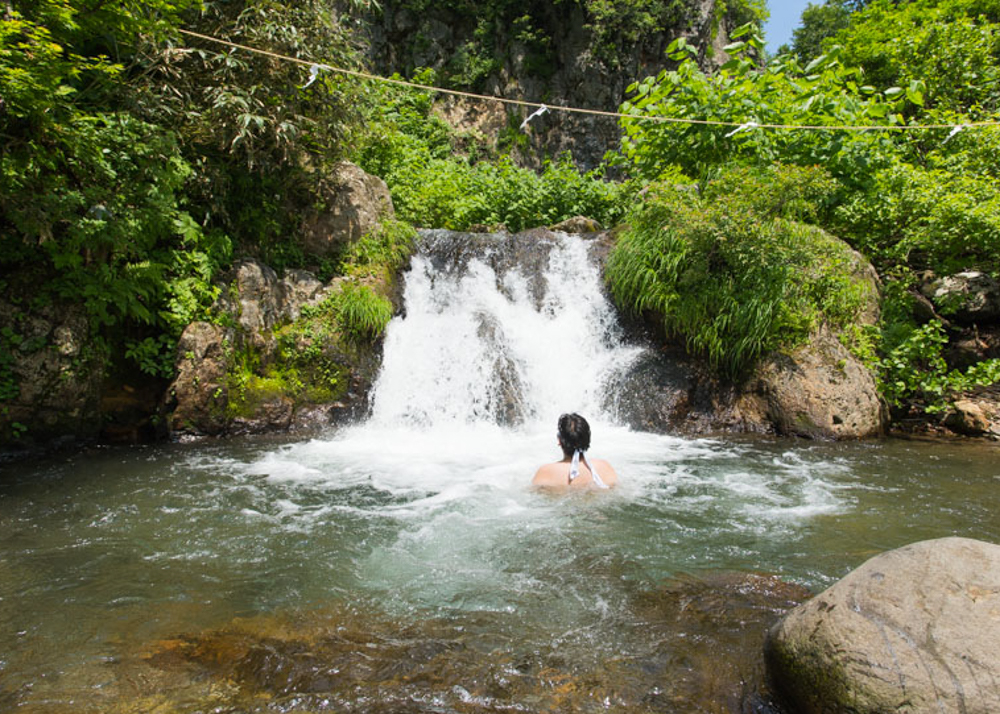
Yamabushi Training on Mt. Yudono
An article about my experience undergoing the traditional spiritual training of yamabushi monks on Mount Yudono of the Dewa Sanzan.
Protruding from the vast sprawling Shonai plains tower the three sacred mountains known as the Dewa Sanzan. Feared and worshipped for their sanctitude, beauty, and raw spiritual energy, the three peaks of Haguro, Gassan, and Yudono are said to represent the journey of rebirth and have been sought out by pilgrims, travelers and wanders for well over 1,500 years. As you trek your way along the cedar-lined stone steps ascending to the divine peak, the piercing call of a horagai shell breaks the tranquil silence of the forest and the white-clad Yamabushi makes his presence known. Here in the Dewa Sanzan extends the realm of the Yamabushi.
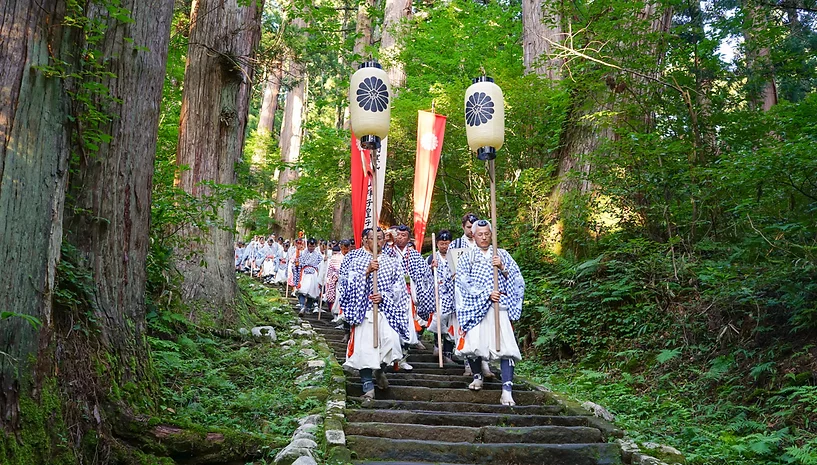
Donned in the all-white robes of the dead, horagai shell draped around the neck, and with walking staff clenched in fist, the Yamabushi are the spiritual mountain ascetics of the Dewa Sanzan and pious practitioners of Haguro Shugendo.
Shugendo is a religion unique to Japan and is an amalgamation of native Japanese Shinto and esoteric Buddhism, along with some trace practices taken from Daoism and folk Shamanism. When Buddhism was introduced to Japan from the Korean Peninsula during the 6th century, a problem arose as while Buddhism was an effective tool for propagating a strong central state, the Japanese emperor’s power was already deeply rooted in his divine Shinto origins that established him as a direct descendent of the sun goddess Amaterasu. Rather than have one religion overcome the other, the imperial court decided to let both religions coexist side-by-side and develop into Shugendo, a convergence of both Shinto and esoteric Buddhist beliefs.
Yamabushi practices are typically rooted in nature and often include partaking in ascetic practices of self-denial. These practices could take the form of grueling mountainous treks, meditation under rushing freezing waterfalls, and even leaping over bursting flames. These rituals stem from beliefs that by abstaining from the world’s pleasures, distancing themselves from society, and focusing on their connection with nature that one can abandon their worldly self and eventually reach enlightenment, ending the cycle of rebirth.
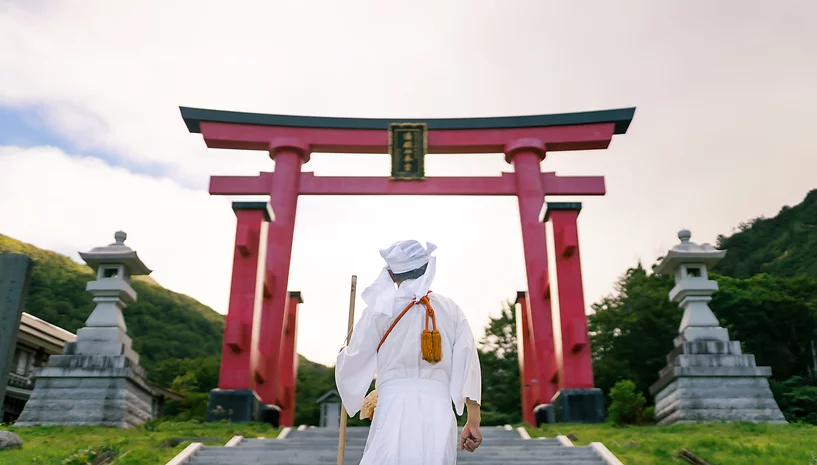
While historically Yamabushi were primarily pious practitioners that often lived lives of solidary monkhood, in the modern age most Yamabushi today are not full-time ascetic monks but are simply regular everyday people who work everyday jobs such as shop clerks, farmers, or even business people in Tokyo! While each lives their own life in their own style, they still commit to their spiritual practices when possible such as by partaking in annual pilgrimages, spiritual hikes, and sacred rituals deep in the mountains. In essence, anyone can be Yamabushi as it is more about the beliefs than it is about the actual daily lifestyle.
Here on the Dewa Sanzan, today many Yamabushi choose to work as innkeepers at local Shukubo, the historic mountain lodges that served as places of rest and meeting for Yamabushi along their religious pilgrimages into the mountains. While in their heyday the Shukubo numbered well over 300 in the mountain town of Touge at the foot of Mount Haguro, today that number has dwindled down to about 29 that are still used to accommodate Yamabushi as well as travelers looking to enrich their stays here on the Dewa Sanzan and deepen their understanding of the Yamabushi.
By staying at a local Shukubo, one can also get a taste of shojin ryori, the traditional vegetarian cuisine of the Yamabushi. For the Yamabushi, all that comes from the mountain is sacred and flowing with an abundance of natural spiritual energy and so by intaking the fresh mountain vegetables and by spending time in the lush pristine nature of the Dewa Sanzan, the body becomes infused with spiritual energy from both inside and out.
Experiences we offer include a combination of these Yamabushi oppotunities featured below.
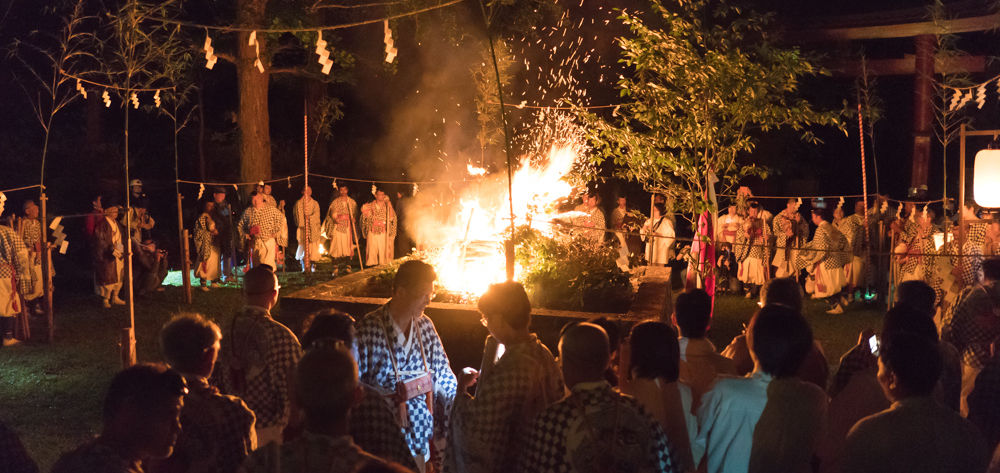
While in the past Yamabushi training and teachings have been esoteric in nature, shrouded in secrecy, and limited only to men; today anyone can participate in Yamabushi training to get a rare glimpse into the ancient rituals and lives of the Yamabushi for themselves.
To be clear, the only official Yamabushi training of the Dewa Sanzan are directly administered by the Dewa Sanzan Shrine for the Shinto training and by Kotakuji Shozen’In Temple for the Shugen training during their yearly Akinomine Peak Ritual held deep in the mountains.
However, in addition to this intensive training, the Shukubo lodges and Yamabushi of the Dewa Sanzan also lead a number of experience programs meant to introduce various aspects of the Yamabushi training by the Dewa Sanzan Shrine for guests seeking to gain a deeper understanding and appreciation of the Yamabushi and their customs.
Please note however that partaking in these experiences does not make you a Yamabushi yourself but is meant to be an educational glimpse into what the training of real Yamabushi is like. In recent years the Yamabushi have become very receptive to opening up their traditions and training in the hope of promoting their teachings and philosophy beyond their mountain domains.
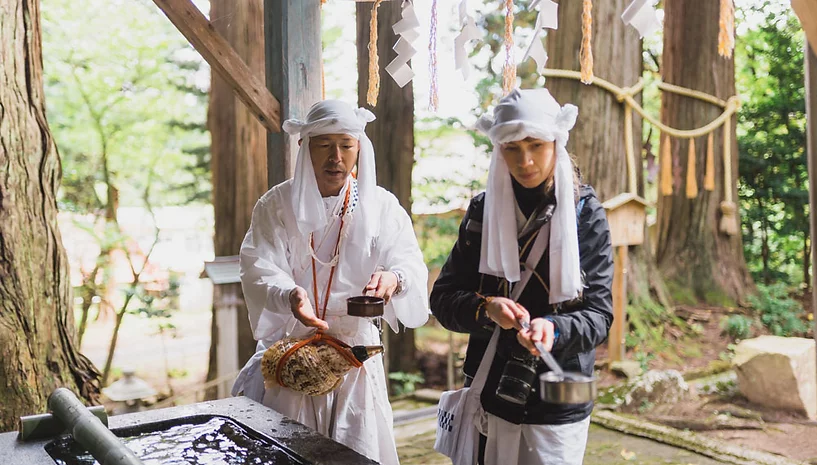
Through our special Yamabushi training programs, international participants can train alongside real Yamabushi through programs available throughout the year and with varying levels of commitment.
On the intensive end, international participants with Japanese language ability may apply to take part in the official Yamabushi training of the Dewa Sanzan Shrine, the Akinomine Peak Ritual, a massive yearly pilgrimage, where over 150 Yamabushi train deep in the forests of Mt. Haguro for a full week. During this time they are isolated without internet access, or the ability to bathe, and must endure continuous intensive rituals deep to purify their souls and come out of the mountains reborn.
For those that are looking just to casually learn a bit more about the Yamabushi and Shugendo, we also offer short-term training programs that span either a few hours or a few days in length to help provide guests with a chance to experience their teachings and rituals without the heavy commitment.
See below for some of the Yamabushi programs that are currently available.
These programs have been made in collaboration with the monks of the Miyatabo lodge on Mt. Haguro as well as the Yamabushi of the Mt. Yudono Shrine.
Note that these programs take place in Tsuruoka City. This city can be reached from Tokyo by train via Tsuruoka Station (4 hours) or by direct flight from Haneda Airport to Shonai Airport (1 hour). A night bus also runs between Shinjuku Station and Tsuruoka City (8 hours).

An article about my experience undergoing the traditional spiritual training of yamabushi monks on Mount Yudono of the Dewa Sanzan.
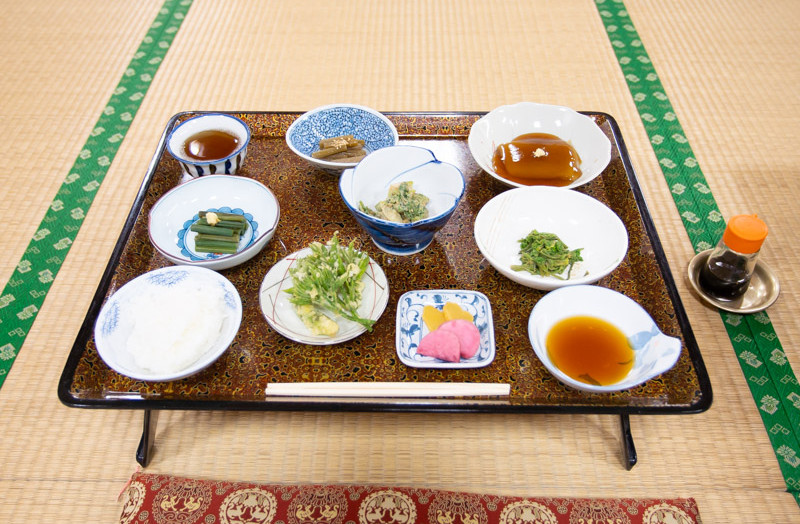
Forage wild sansai vegetables on the slopes of Mount Haguro alongside yamabushi mountain monks, then use them to cook shojin ryori dishes.
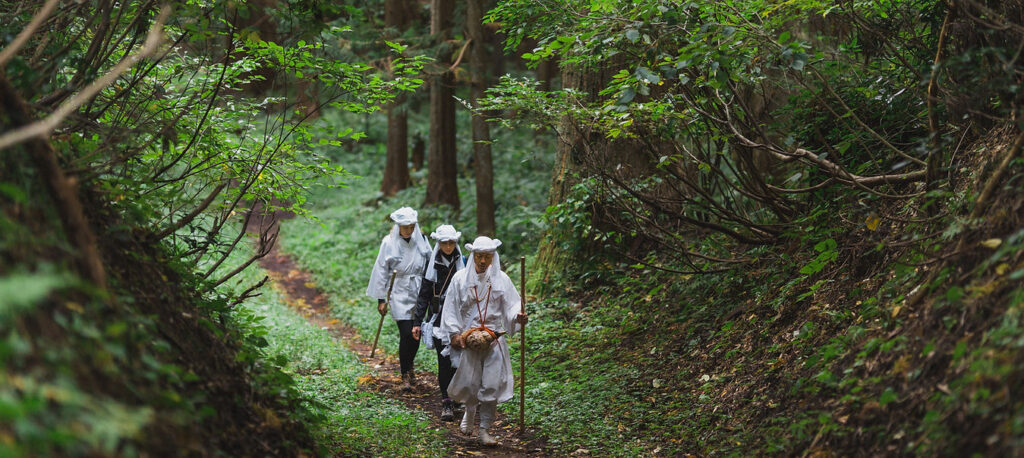
Venture into the nature of Yamagata with yamabushi mountain monks along their ancient training paths on Mount Kinbo.
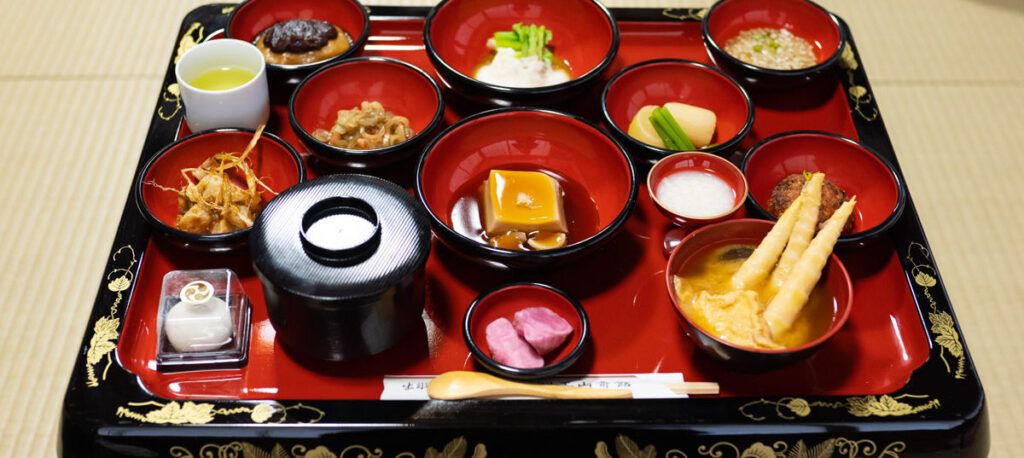
Dine on Dewa Sanzan shojin ryori, sleep at a pilgrim’s lodge. Wake the next morning to harvest vegetables and learn to cook this cuisine.
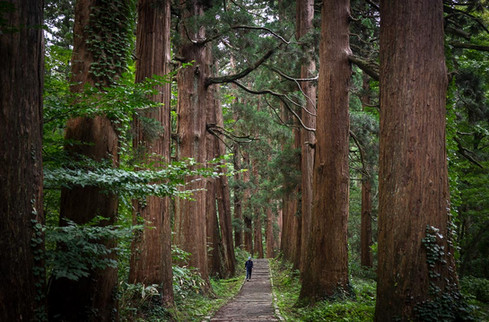
A guided hike up the 2,446 stone steps of holy Mount Haguro, with a lunch of Dewa Sanzan shojin ryori mountain monk cuisine.